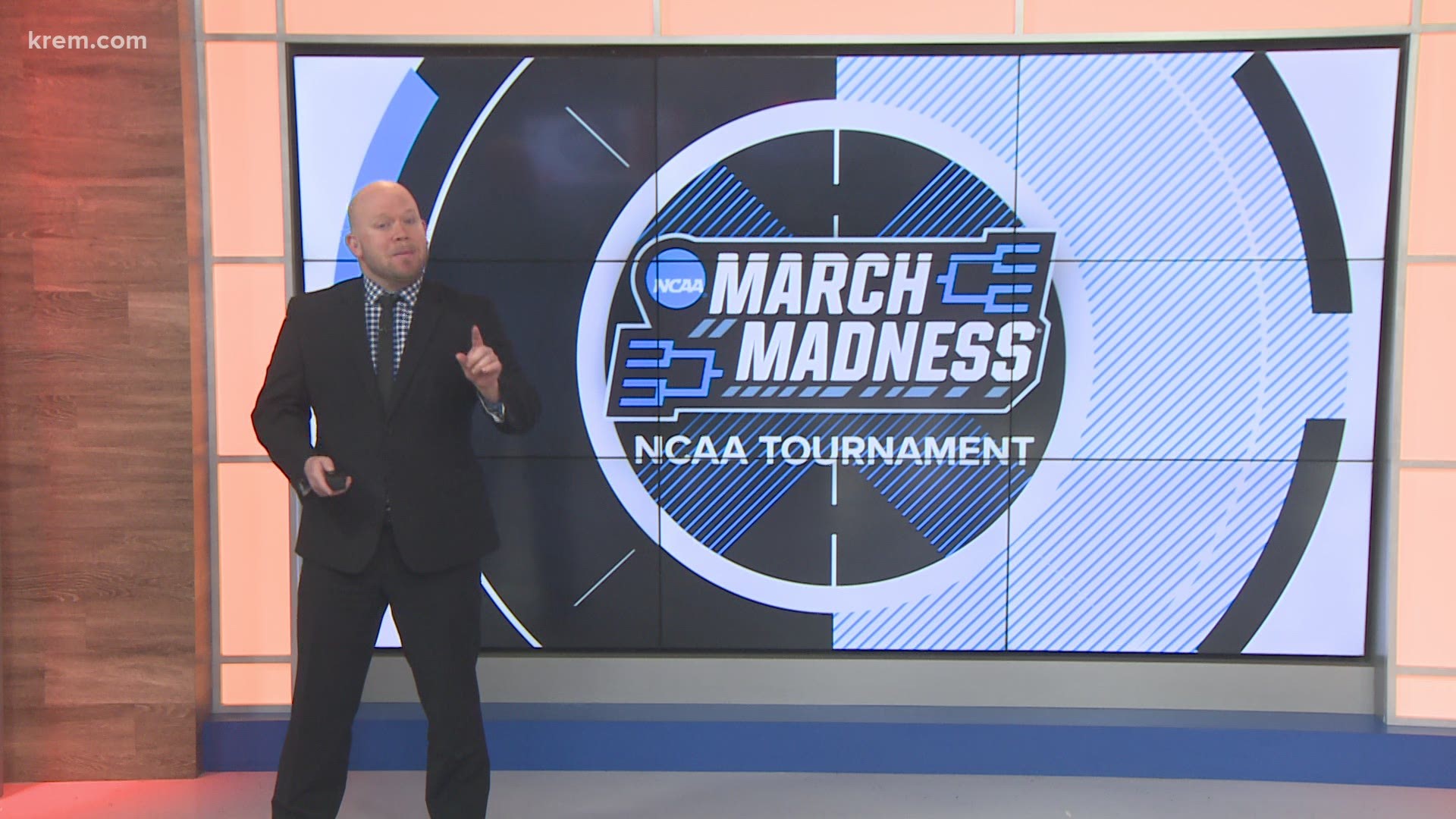SPOKANE, Wash. — No, you're probably not going to fill out a perfect March Madness bracket this year. Or any year. Ever. The odds of picking a perfect tournament bracket are 1 in 9,223,372,036,854,775,808. That's 9.2 quintillion.
But if you're looking for a boost to keep your bracket from busting during this year's NCAA Tournament, there are plenty of helpful statistics to help you get started.
Tip #1: Don't get cute, pick 1-seeds to beat 16-seeds
In 2018, there was a collective shock around the world of college basketball, as the 16-seeded University of Maryland, Baltimore County pulled off a massive upset against 1-seeded Virginia, who was also ranked as the top overall team heading into the tournament.
It was the first, and only, time that a 16-seed has pulled off such a feat. No. 1 seeds are historically 139-1 in the opening round matchups.
Managing how far your No. 1 seeds advance is one of the most important parts of filling out any March Madness bracket, so even though you'll look brilliant for correctly picking a 16-seed upset, it's just too risky to play those kinds of odds and realistically hope to win.
But even though you should advance your 1-seeds past their first game this year, that doesn't mean you should automatically send them all the way.
Tip #2: Avoid picking all of the 1-seeds to make the Final Four
In 2008, the tournament's Final Four included four 1-seeds: Kansas, Memphis, North Carolina and UCLA.
That year marks the only time all four 1-seeds have advanced that far, since the tournament field expanded to 64 teams in 1985.
So how many 1-seeds should you advance into your Final Four?
Three or more 1-seeds have only occupied the Final Four five times, so about 15%.
And if you're thinking of dropping all of your 1-seeds out of the tournament before the Final Four, that's only happened twice since 1985.
The sweet spot seems to be in the strategy of picking just one 1-seed to advance (41% of the time) or two 1-seeds to advance (38% of the time).
But even with all of that in mind, remember: it's called March Madness for a reason.
Tip #3: Embrace the madness, let yourself pick some upsets
It's arguably the most fun part of any March Madness tournament: an unexpected underdog surges past the odds-on favorites, blazing a trail into the deeper rounds of the event.
They're called the "Cinderella" teams, and your perfect upset pick might force your office-mates and coworkers to rip up their brackets in frustration.
So how do you pick a proper Cinderella, upset team?
Yes, you could pick a colossal upset of a 14-seed beating a 3-seed, or even push your luck further with a wild 15-seed upset over a 2-seed.
But the statistics show the best match-ups to find your Cinderella story is in these three matchups: 5 vs. 12, 6 vs. 11 and 7 vs. 10.
Since 1985, 12-seeds have pulled a first-round upset 34.6% of the time, 11-seeds have won the first-round match-ups 37.5% of the time, and 10-seeds have advanced past the 7-seeds 38.2% of the time.
To put it simply, more than one-third of the time these matches can produce an unexpected underdog, so follow the stats and feel comfortable scouring those match-ups for 3-5 upsets this year.
Tip #4: Control your chaos
Now that you've sent your 1-seeds past your 16-seeds, picked a few "Cinderellas" and started to find some very interesting match-ups in your bracket, let's be sure to set realistic expectations for our continually-decreasing field of basketball teams.
For example, do you plan on pushing your 10-seeded Cinderella all the way to the championship?
That's where you might want to pump the brakes: lower-seeded teams don't traditionally take home championship glory.
The lowest-seeded team to ever win the NCAA men's basketball tournament was the 8-seeded Villanova, back in 1985.
There's also only been one 7-seed champion, one 6-seed champion and one 4-seed champion. No 5-seed has ever won it all.
Save your championship spot for those No. 1, 2 and 3 seeds.

